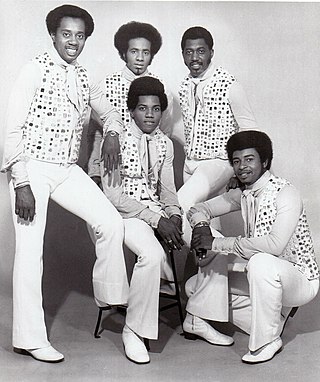
Norman Jesse Whitfield was an American songwriter and producer, who worked with Berry Gordy's Motown labels during the 1960s. He has been credited as one of the creators of the Motown Sound and of the late-1960s subgenre of psychedelic soul.

Barrett Strong Jr. was an American singer and songwriter known for his recording of "Money ", which was the first hit single for the Motown record label. He is also known for his songwriting work in association with producer Norman Whitfield; together, they penned such songs as "I Heard It Through the Grapevine", "War", "Just My Imagination ", and "Papa Was a Rollin' Stone".

Psychedelic Shack is the twelfth studio album by The Temptations for the Gordy (Motown) label released in 1970. Completely written by Norman Whitfield and Barrett Strong and produced by Whitfield, Psychedelic Shack almost completely abandoned the "Motown Sound" formula, instead delving fully into psychedelia. Along with the hit title track, the album also features the group's original version of "War", which became a major hit for Edwin Starr later in 1970.
The Undisputed Truth was an American Motown recording act, assembled by record producer Norman Whitfield as a means for being able to experiment with his psychedelic soul production techniques. Joe "Pep" Harris served as main lead singer, with Billie Rae Calvin and Brenda Joyce Evans on additional leads and background vocals.
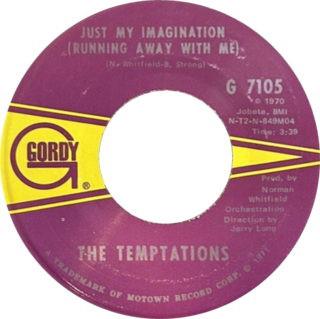
"Just My Imagination (Running Away with Me)" is a song by American soul group the Temptations, written by Norman Whitfield and Barrett Strong. Released on the Gordy (Motown) label, and produced by Norman Whitfield, it features on the group's 1971 album, Sky's the Limit. When released as a single, "Just My Imagination" became the third Temptations song to reach number one on the US Billboard Hot 100. The single held the number one position on the Billboard Pop Singles Chart for two weeks in 1971, from March 28 to April 10. "Just My Imagination" also held the number one spot on the Billboard R&B Singles chart for three weeks, from February 27 to March 20 of that year.

"Smiling Faces Sometimes" is a soul song written by Norman Whitfield and Barrett Strong for the Motown label. It was originally recorded by the Temptations in 1971. Producer Norman Whitfield had the song re-recorded by the Undisputed Truth the same year, resulting in a number-three Billboard Hot 100 position for the group. "Smiling Faces" was the only Top 40 single released by the Undisputed Truth, and was included on their debut album The Undisputed Truth.
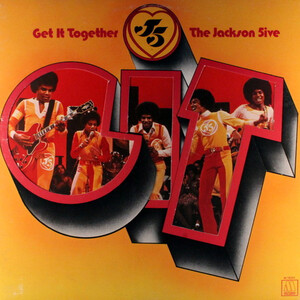
G.I.T.: Get It Together is the eighth studio album by the Jackson 5, released on September 12, 1973 for the Motown label. The album featured the minor hit "Get It Together" and the original version of the subsequent major hit "Dancing Machine", which was later re-released in edited form on a tie-in album of the same name.

Sky's the Limit is the fourteenth studio album by The Temptations for the Gordy (Motown) label released in 1971. The album includes the #1 hit "Just My Imagination ", the Top 40 hit "Ungena Za Ulimwengu ", and the original version of "Smiling Faces Sometimes", later a Top 5 hit for The Undisputed Truth.
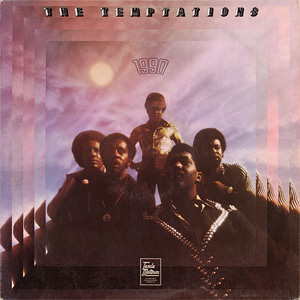
1990 is a 1973 album by The Temptations for the Gordy (Motown) label, their final LP written and produced by Norman Whitfield.

Masterpiece is a 1973 album by The Temptations for the Gordy (Motown) label, produced and written by Norman Whitfield.
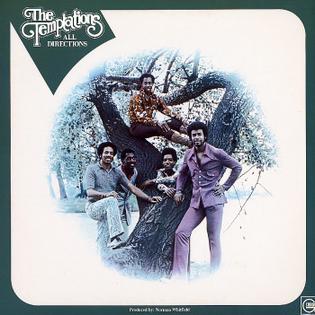
All Directions is a 1972 album by The Temptations for the Gordy (Motown) label, produced by Norman Whitfield. It reached number two on the Billboard 200, making it the band's most successful non-collaborative album on the chart, and became their twelfth album to reach number one on the Top R&B Albums chart.

Solid Rock is a 1972 album by The Temptations for the Gordy (Motown) label, produced by Norman Whitfield. The LP was the first made primarily without founding members and original lead singers Eddie Kendricks and Paul Williams. Frustrated by conflicts and fights with Temptations Otis Williams and Melvin Franklin, and producer Whitfield's steadfast insistence on producing psychedelic soul for the group when they really wanted to sing ballads, Kendricks had quit the act and negotiated a solo deal with Motown's Tamla label.

"Superstar (Remember How You Got Where You Are)" is a 1971 hit single for the Gordy (Motown) label, recorded by The Temptations and produced by Norman Whitfield. Something of an early ancestor to the "diss songs" prevalent in hip hop music towards the end of the 20th century, "Superstar" is an attack at two former Temptations members, David Ruffin (who had been fired back in 1968) and Eddie Kendricks (who quit the act in early 1971 and negotiated a Motown solo deal). The song appears on the 1972 album Solid Rock.
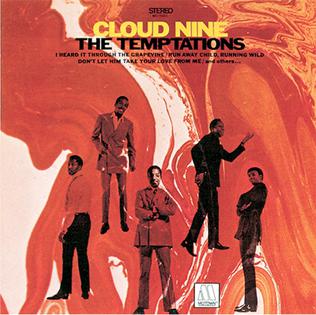
Cloud Nine is the ninth studio album by American musical group The Temptations for the Gordy (Motown) label released in 1969.
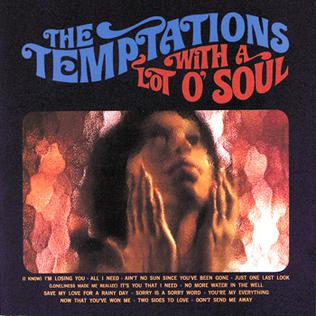
The Temptations with a Lot o' Soul is the fifth studio album by The Temptations for the Gordy (Motown) label released in 1967. Featuring four hit singles, With a Lot o' Soul is the most successful Temptations album from their "classic 5" era, during which David Ruffin, Eddie Kendricks, Paul Williams, Melvin Franklin, and Otis Williams constituted the Temptations' lineup.

That's the Way Love Is is the tenth studio album by soul musician Marvin Gaye, released on January 8, 1970, on the Tamla (Motown) label. Built on the success of the title track originally taken from M.P.G., and much like Gaye's "I Heard It Through The Grapevine" after its success, was released with intent to sell albums based on the success of one particular single. Gaye was showing signs of disillusionment from the label's powers-that-be mentality but it didn't affect the singer's performance as he gave a powerful vocal in the title track and was especially impressive with his version of The Beatles' "Yesterday". He achieved some success with a cover version of "How Can I Forget?", which just missed out on the US Pop Top 40, making #41, and reached #18 on the R&B Charts. Its B-side, a cover of Jimmy Ruffin's "Gonna Give Her All the Love I've Got", made a separate chart entry, and peaked at #67 and #27 on the Pop and Soul Charts respectively. Gaye also recorded a version of Ruffin's "Don't You Miss Me a Little Bit Baby" for the album. The LP also features Gaye's rendition of the socially conscious tune "Abraham, Martin & John", which became a hit in the UK, peaking at #9 in June 1970. The single is widely regarded as a hint of what would follow a year later with his What's Going On. He also covered The Temptations' hits "I Wish It Would Rain" and "Cloud Nine".

"Gonna Give Her All the Love I've Got" is a 1967 Soul song, originally recorded and made a hit by Jimmy Ruffin on Motown's Soul Label imprint. Ruffin's 1967 original version, from his album Jimmy Ruffin Sings Top Ten, reached the Pop Top 30, peaking at #29, and was a Top 20 R&B Hit as well, peaking at #14. It was also a hit in Britain, reaching #26 on the UK Singles Chart. The song has a social context: it depicts a man anticipating his release from prison on the morrow, when he'll return home on a train to "the girl that I left behind," promising himself that he will reward her steadfast love for him by "giv[ing] her all the love [he's] got." The song was written by Norman Whitfield and Barrett Strong and produced by Whitfield.

Face to Face With the Truth is the second album by the Motown group The Undisputed Truth, released in 1972.
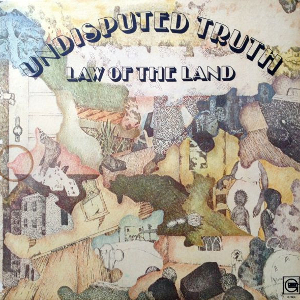
Law of the Land is the third album by the Norman Whitfield's Motown group The Undisputed Truth.

Down to Earth is the fourth album by psychedelic soul group The Undisputed Truth.



















